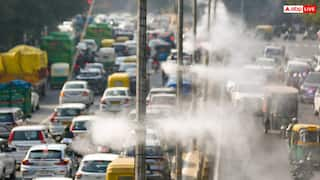Explorer
Boycott hits Pakistan as PM Modi to skip SAARC summit in Islamabad

NEW DELHI: India on Tuesday declared a boycott of the upcoming South Asian Association for Regional Cooperation (Saarc) summit in Islamabad in its toughest diplomatic response yet to the Uri terror attack that ironically risks jettisoning the Prime Minister's signature foreign policy initiative. The announcement, late in the evening, was followed by confirmations from senior Afghan, Bhutanese and Bangladeshi officials that they too had articulated concerns to Nepal, the current Saarc chair, about attending the summit in Pakistan. Like India, both Afghanistan and Bangladesh have in recent months accused Pakistan of sponsoring or providing a base for terrorists that have attacked their countries. Bhutan, which depends on Indian aid for the survival of its economy, has traditionally followed India when New Delhi has taken any demonstrative diplomatic action against another neighbour. Just after 10pm yesterday, Pakistan's foreign ministry too responded, calling the Indian decision "unfortunate" without clarifying if it was calling off the Saarc summit scheduled for November 10-11. But officials from Sri Lanka, the Maldives and Nepal - the three other nations in the eight-country grouping - indicated late Tuesday that they would gently press Pakistan for a postponement of the summit to avoid a formal fracture in the grouping. Eight of the previous 18 Saarc summits were postponed, and one of them - the fifth summit, eventually held in the Maldives in November 1990 - was twice deferred, with India's troubled relations with its neighbours the cause for five of those eight delays. As with the upcoming summit in Islamabad, India has in the past too used the deferment of Saarc summits to highlight its displeasure with a neighbour. But never before has a country boycotted the summit with a public statement as categorical as the one made by the Indian foreign ministry on Tuesday evening. "India has conveyed to current Saarc chair Nepal that increasing cross-border terrorist attacks in the region and growing interference in the internal affairs of member states by one country have created an atmosphere that is not conducive to the successful holding of the 19th Saarc summit in Islamabad in November 2016," foreign ministry spokesperson Vikas Swarup said. "In the prevailing circumstances, the Government of India is unable to participate in the proposed Saarc summit in Islamabad." India has struggled over the past few days to convince the US and other major powers to support its bid to internationally sanction Pakistan, despite pressure these countries have applied more quietly on Islamabad. A boycott of the Saarc by multiple countries, led by India, would suggest at least a regional isolation of Pakistan. The grouping, founded in 1985 at its first summit in Dhaka, has stuttered repeatedly over the past three decades. Its fifth summit, in Colombo in 1989 was twice postponed because of the civil war there and tensions between Sri Lanka and India over New Delhi's intervention in the conflict. It was eventually held in Male in November 1990. The seventh summit, scheduled for January 1993 in New Delhi was postponed by India because of the Babri Masjid demolition the previous month and the riots that triggered. It was eventually held in April in Dhaka - where the then Indian Prime Minister, P.V. Narasimha Rao, faced public protests over the mosque demolition. The eighth summit - which New Delhi had promised to host in 1994 - was also postponed because of the persisting turmoil in India, and was held in 1995. The 11th summit, scheduled for November 1999 in Kathmandu, was postponed following India's demand after a military coup in Pakistan that brought General Pervez Musharraf to power. It was finally held in January 2002. But tensions that continued between India and Pakistan through 2002 - following the Parliament terror attack in December 2001 - led to a postponement of the 12th summit scheduled for January 2003 in Islamabad by a year. The 13th summit was scheduled for January 2005 in Dhaka. But the coup in Kathmandu in which King Gyanendra dismissed the elected government and took executive control, coupled with tensions between the Manmohan Singh government in India and the Khaleda Zia administration in Bangladesh made New Delhi opt out. The summit was postponed till November. Male, which was to host the 16th summit in early 2009, declared it would be unable to prepare for the meet, forcing a postponement - Thimphu hosted the summit in 2010, while the Maldives hosted the next summit. In 2012, Nepal, which was to host the 18th summit, also declared it needed more time. The meet was eventually held in November 2014. By then, Modi, as Prime Minister of India, had declared South Asian regional integration as his principal foreign policy objective. India had invited - and hosted - leaders from all South Asian nations at Modi's swearing-in ceremony in May that year. Modi had announced a Saarc satellite, plans to assist Saarc nations with disease control, and long-term visas for businessmen from Saarc countries. "When we speak of Saarc, we usually hear two reactions - cynicism and scepticism," Modi had told the Kathmandu summit. "Yet, South Asia is slowly coming together." On Tuesday, it was coming apart. -The Telegraph Calcutta
Related Video
Indore Water Crisis: Contaminated Supply Causes Deaths, Authorities Face Severe Negligence Questions
Follow Breaking News on ABP Live for more latest stories and trending topics. Watch breaking news and top headlines online on ABP News LIVE TV
Top Headlines
Technology
Cities
News
Cities

Nayanima Basu
Opinion




































